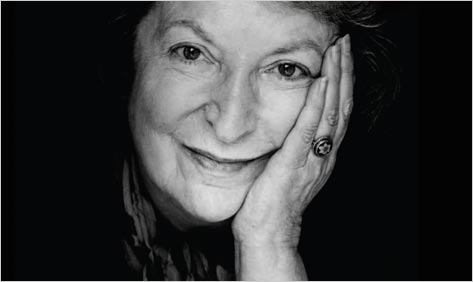Described by Francis Davis as the “Queen
bee of American movie critics,” Pauline Kael sure had a unique voice and set
new standards for film critic. She wrote beyond mere technical aspects, and this
style of analysis broadened the spectrum and definition of what criticism was
and is.
Being
a critic for The New Yorker magazine
for 23 years, she had followers –also fellow writers known as “Paulettes”- and
haters, but both would listen to what she had to say. “I love writing about
movies when I can discover something in them – when I can get something out of
them that I can share with people.” Sometimes those dissertations were not
shared by many. But she was not afraid to run contrary to the established
critical opinion. “If you write critically, you have to do something besides
get excited. You have to examine what’s in front of you,” she said. Pauline had
very clear ideas which she backed up with strong arguments, an extended
background on cinema and the gift of speech.
She praised when it was necessary
and well deserved, and so she did with the pans. Pauline was different from
other critics in the sense that many have a monotonous voice; she was far from
that. Pauline never watched a movie twice, so when writing, she went with her
gut. Her approach to reviewing was “to write about the movies the way people
actually talked about them on leaving the theater.” That made her more
relatable and enjoyable. You feel her close when you read her and in Afterglow we get the image of a
down-to-Earth woman who loved writing and loved life. A woman who had a strong sense
of balance and criticism and knew how to share it with the world.
Sometimes her topic choices were
controversial or she would write out of the expected line of an article. In her
review of Funny Girl she analyzes the
moral behind the plot, a discussion on whether talent is beauty. She wanted the
readers to expand their minds and reasoning, she wanted to make us think.
“It’s difficult to be a critic of
mass culture,” she admitted. But she made it so gracefully and still firmly. It
is just so easy to get lost among so many people and opinions. But Pauline did
her own thing her own way and she will be remembered for that.

I thought this was a really great profile of Pauline Kael. You balanced biography with analysis of her style really well and took a clear stance on what you thought about her. Plus you used great examples and evidence without making it sound like a research paper. Great job!
ResponderEliminar